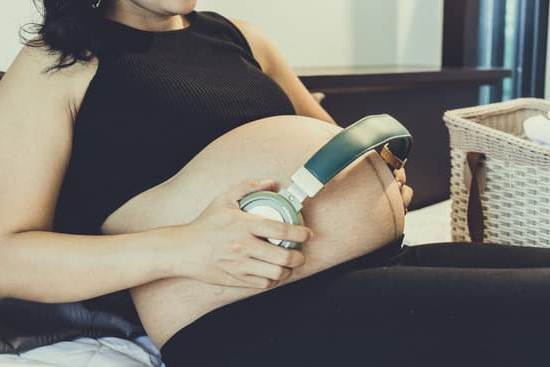Pregnancy is a time of great joy and anticipation, but it can also bring about various discomforts and health issues. One common concern that expectant mothers may experience is diarrhea. Understanding the causes and potential impact of diarrhea during pregnancy is crucial for ensuring the well-being of both the mother and the developing baby. This article will explore the prevalence, symptoms, triggers, risks, treatment options, preventive measures, and when to seek medical attention for diarrhea during pregnancy.
Diarrhea during pregnancy can be a distressing experience for expectant mothers. It is essential to recognize the signs and understand when it becomes necessary to seek medical assistance. Hormonal changes, dietary factors, and stress are some of the common triggers for diarrhea in pregnancy. The prevalence of this condition among pregnant women is considerable, making it important to be aware of its potential risks and complications.
This article will delve into these aspects in detail to equip pregnant women with the knowledge they need to manage this issue effectively. By providing information on symptom recognition, risk factors for mother and baby, treatment options, preventive measures, and knowing when to consult a doctor, we aim to empower expectant mothers in promoting their digestive health during pregnancy.
Symptoms of Diarrhea During Pregnancy
During pregnancy, women may experience a range of symptoms related to their changing body and hormonal fluctuations. Diarrhea is one such symptom that can occur during this time, causing discomfort and concern for expecting mothers. It is important to be aware of the signs and symptoms of diarrhea during pregnancy in order to take appropriate action and ensure the well-being of both the mother and the baby.
What to Look Out For
Symptoms of diarrhea during pregnancy include frequent loose or watery stools, abdominal cramping, and a sense of urgency to have a bowel movement. Diarrhea may also be accompanied by other gastrointestinal symptoms such as bloating, gas, and nausea. In some cases, pregnant women may also experience fever or blood in their stool, which could indicate a more serious underlying condition requiring medical attention.
When to Seek Medical Attention
While occasional mild episodes of diarrhea may not be cause for alarm, persistent or severe diarrhea should prompt expectant mothers to seek help from their healthcare provider. If diarrhea is accompanied by signs of dehydration such as intense thirst, decreased urination, lightheadedness, or weakness, it is crucial to consult a doctor immediately.
Additionally, if diarrhea is interfering with the mother’s ability to eat or drink properly, or if there are concerns about the baby’s movements or well-being, medical attention should be sought without delay.
Common Triggers for Diarrhea in Pregnancy
During pregnancy, women may experience changes in their digestive system that can lead to diarrhea. Understanding the common triggers for diarrhea during pregnancy is important for expectant mothers to manage and prevent this uncomfortable symptom. Below are some of the most common triggers for diarrhea in pregnancy:
- Hormonal changes: The surge in hormones, particularly progesterone, during pregnancy can affect the muscles of the digestive tract, leading to more frequent bowel movements and looser stools.
- Dietary factors: Certain foods or beverages such as spicy foods, caffeine, artificial sweeteners, and high-fat meals can trigger diarrhea in pregnant women. Additionally, food sensitivities or intolerances may manifest or worsen during pregnancy.
- Stress and anxiety: Emotional stress and anxiety can also impact the digestive system, leading to diarrhea. Pregnancy itself can be a stressful time for many women, and this added emotional burden can contribute to gastrointestinal issues.
These triggers can vary from woman to woman, and identifying individual triggers is essential for managing diarrhea during pregnancy.
It is important for pregnant women experiencing diarrhea to pay attention to these triggers as they may need to make adjustments to their lifestyle and diet. If symptoms persist or worsen, it is advisable to consult with a healthcare professional for personalized advice and treatment options. By understanding these common triggers, expectant mothers can take proactive steps to alleviate symptoms of diarrhea during pregnancy.
Risks and Complications for Mother and Baby
Diarrhea during pregnancy can pose several risks and complications for both the expectant mother and her unborn baby. One of the most significant risks is dehydration, which can occur rapidly if diarrhea is severe or prolonged. Dehydration can lead to a range of issues, including electrolyte imbalances, dizziness, weakness, and in extreme cases, preterm labor. Pregnant women experiencing diarrhea should pay close attention to their fluid intake and seek medical help if dehydration is suspected.
In addition to dehydration, diarrhea in pregnancy can also lead to nutrient depletion. Chronic or severe diarrhea can interfere with the body’s ability to absorb essential nutrients, such as vitamins and minerals, which are crucial for the health and development of the fetus. This depletion can potentially impact fetal growth and development, making it important for pregnant women to address diarrhea symptoms promptly.
Furthermore, untreated diarrhea during pregnancy has the potential to have adverse effects on fetal development. If necessary nutrients are not being absorbed due to persistent diarrhea, it may result in developmental delays or other complications for the growing baby. It is therefore essential for expectant mothers experiencing prolonged or severe diarrhea to seek medical advice and appropriate treatment options to mitigate these risks.
| Risks and Complications | Impact |
|---|---|
| Dehydration | Electrolyte imbalances, weakness |
| Nutrient Depletion | Interference with fetal development |
| Potential Impact on Fetal Development | Developmental delays or complications |
Treating Diarrhea in Pregnancy
When experiencing diarrhea during pregnancy, it is important to consider safe and effective ways to treat the symptoms. Diarrhea during pregnancy can be caused by various factors such as hormonal changes, dietary factors, and stress or anxiety. It is essential for pregnant women to understand the available treatment options to alleviate discomfort and prevent any potential risks or complications for both the mother and the baby.
One of the main concerns when dealing with diarrhea during pregnancy is dehydration. It is crucial for pregnant women to stay hydrated, especially when experiencing frequent bowel movements. Replenishing fluids lost through diarrhea is essential for maintaining overall health during pregnancy. Oral rehydration solutions are often recommended to help restore electrolyte balance and prevent dehydration.
In addition to staying hydrated, certain over-the-counter medications may be considered safe for treating diarrhea during pregnancy. However, it is important for pregnant women to consult their healthcare provider before taking any medication to ensure the safety of the treatment for both the mother and the developing baby. Home remedies such as consuming probiotics or eating bland foods can also help in relieving symptoms of diarrhea during pregnancy.
| Treatment | Description |
|---|---|
| Oral rehydration solutions | Helps restore electrolyte balance and prevent dehydration |
| Safe over-the-counter medications | Approved by healthcare provider to alleviate symptoms |
| Home remedies (probiotics, bland foods) | Natural ways to relieve discomfort from diarrhea |
Overall, addressing diarrhea symptoms promptly can help pregnant women manage their condition effectively and promote maternal and fetal well-being.
Preventing Diarrhea in Pregnancy
During pregnancy, it is important for women to take proactive steps to prevent diarrhea in order to maintain their health and ensure the well-being of their baby. Here are some tips for maintaining digestive health and preventing diarrhea during pregnancy:
- Stay Hydrated: Drinking plenty of water can help regulate bowel movements and prevent dehydration, which is a common complication of diarrhea during pregnancy.
- Eat a Balanced Diet: Consuming a diet rich in fiber, fruits, vegetables, and whole grains can promote healthy digestion and minimize the risk of diarrhea.
- Avoid Trigger Foods: Some foods may trigger diarrhea during pregnancy, such as spicy or greasy foods. It’s important to identify these triggers and limit their consumption.
Moreover, there are several preventive measures that pregnant women can take to reduce the likelihood of experiencing diarrhea:
- Practice Good Hygiene: Washing hands thoroughly and frequently can help prevent the spread of bacteria and viruses that can cause diarrhea.
- Manage Stress: High levels of stress and anxiety can contribute to digestive issues. Engaging in relaxation techniques or activities that reduce stress can be beneficial for preventing diarrhea.
- Exercise Regularly: Physical activity can aid in maintaining regular bowel movements and overall digestive health. Consult with your healthcare provider before starting any new exercise routine during pregnancy.
By following these preventive measures, pregnant women may reduce their risk of experiencing diarrhea and promote overall digestive well-being throughout their pregnancy.
Remember that it is always crucial to consult with a healthcare provider before making any significant changes to your diet or exercise routine during pregnancy. If you have any concerns about preventing or managing diarrhea during pregnancy, seek guidance from your doctor for personalized recommendations tailored to your specific needs.
When to Consult a Doctor
When experiencing diarrhea during pregnancy, it is important to know when to consult a doctor for medical attention. Diarrhea can be common during pregnancy due to hormonal changes, dietary factors, and increased stress and anxiety. However, there are certain symptoms that may indicate a need for medical intervention.
Red Flags for Seeking Medical Help
If you experience severe dehydration, indicated by symptoms such as dizziness, extreme thirst, or dark colored urine, it is crucial to seek medical attention immediately. Additionally, if you have bloody diarrhea or if your diarrhea is accompanied by a high fever, it is recommended to consult a doctor right away. These symptoms could be indicative of an underlying infection or more serious condition that needs prompt treatment.
Importance of Regular Prenatal Check-Ups
Even if your symptoms do not indicate an emergency situation, it is still important to discuss any concerns about diarrhea with your healthcare provider during your regular prenatal check-ups. They can provide guidance on managing the symptoms and ensuring that both you and your baby are staying healthy throughout the pregnancy.
It is also essential to keep an open line of communication with your doctor in case there are any changes in your condition that may require medical attention. Regular prenatal check-ups also allow the healthcare provider to monitor the overall impact of diarrhea on pregnancy and take necessary steps to manage the symptoms for maternal and fetal well-being.
Conclusion
In conclusion, diarrhea during pregnancy can be a challenging and uncomfortable experience for expectant mothers. The hormonal changes, dietary factors, and increased stress and anxiety can all contribute to this digestive issue. It is important for pregnant women to be mindful of the symptoms of diarrhea, such as frequent loose stools, abdominal cramping, and dehydration. Seeking medical attention when needed is crucial in order to prevent any potential risks and complications for both the mother and the baby.
Managing diarrhea in pregnancy is essential for ensuring the well-being of both mother and child. Dehydration and nutrient depletion are serious concerns that can arise from prolonged diarrhea, potentially impacting fetal development. Therefore, it is important to take steps to address these symptoms by considering safe medication options under the guidance of a healthcare professional, utilizing home remedies, and making dietary adjustments.
It is also crucial for pregnant women to focus on preventative measures in maintaining their digestive health. This includes following a healthy diet rich in fiber, staying hydrated, managing stress levels, and practicing good hygiene.
Regular prenatal check-ups are also important for monitoring any potential complications related to diarrhea during pregnancy. Overall, by being proactive in managing these symptoms and seeking appropriate medical care when necessary, pregnant women can help ensure a smoother and healthier pregnancy for themselves and their babies amidst the challenges of dealing with diarrhea.
Frequently Asked Questions
Is It Normal to Have Loose Stools While Pregnant?
It is normal to experience loose stools during pregnancy. This can be due to hormonal changes, dietary adjustments, or prenatal vitamins. However, if it becomes severe or persistent, it’s important to consult a healthcare provider.
Is Diarrhea in Early Pregnancy Normal?
Diarrhea in early pregnancy can be normal as the body undergoes hormonal and physiological changes. However, it could also be a sign of an infection or food intolerance. If diarrhea is accompanied by other concerning symptoms, it’s best to seek medical advice.
What Should I Do if I Have Diarrhea During Pregnancy?
If you have diarrhea during pregnancy, it’s important to stay hydrated by drinking plenty of fluids such as water, broths, and electrolyte beverages. Avoiding certain foods that can exacerbate diarrhea and getting rest are also recommended. However, if diarrhea persists for more than 24 hours or is severe, contacting a healthcare provider is crucial for proper evaluation and treatment.

Welcome to my fertility blog. This is a space where I will be sharing my experiences as I navigate through the world of fertility treatments, as well as provide information and resources about fertility and pregnancy.





